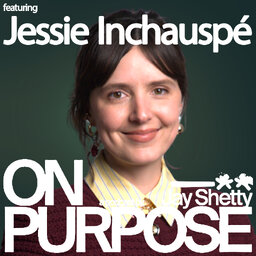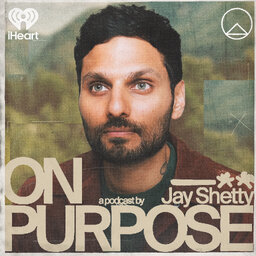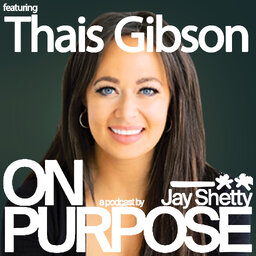7 Ways to Be Productive Even When You're Tired
Do you want to meditate daily with me? Go to go.calm.com/onpurpose to get 40% off a Calm Premium Membership. Experience the Daily Jay. Only on Calm
Too tired to work. Too tired to move around. Too tired to just do anything. When you’re too exhausted you lack the energy to finish what you need to do, you lose the chance to accomplish important tasks and it only leads to more stress and frustration. It becomes a stumbling block, that when left alone and unaddressed, can become problematic and may affect your routines.
In this episode of On Purpose, Jay Shetty shares with us the best practices that can help us regain our strength and replenish our energy to remain productive.
Want to be a Jay Shetty Certified Life Coach? Get the Digital Guide and Workbook from Jay Shetty https://jayshettypurpose.com/fb-getting-started-as-a-life-coach-podcast/
Key Takeaways:
- 00:00 Intro
- 01:03 Take a break when you feel too tired
- 05:26 Tip #1: Genuinely clear about how much energy you need
- 14:20 Tip #2: Try getting a shower to freshen up
- 15:57 Tip #3: Listen to music
- 17:16 Tip #4: Exercise
- 19:03 Tip #5: Use standing desk
- 20:25 Tip #6: Practice power naps
- 22:15 Five things to do in five minutes between meetings
- 23:30 Tip #7: Do it then reward yourself
Like this show? Please leave us a review here - even one sentence helps! Post a screenshot of you listening on Instagram & tag us so we can thank you personally!
In 1 playlist(s)
On Purpose with Jay Shetty
My name is Jay Shetty, and my purpose is to make wisdom go viral. I’m fortunate to have fascinating …Social links
Follow podcast
Recent clips

Jessie Inchauspé: 90% of Pregnant People Are Missing THIS Nutrient (Follow THIS Simple Diet To Reduce Glucose Spikes & Protect Your Baby’s Brain & Metabolism)
1:12:12

Stop Trying to “Win” An Argument With Your Partner! (THIS Shift Will Turn Conflict into Communication)
38:35

Relationship Expert Thais Gibson: Do You Keep Attracting The Same Emotionally Unavailable Partner? (Use THIS Attachment Reset To Break The Cycle And Choose Better Partners)
1:44:33
 On Purpose with Jay Shetty
On Purpose with Jay Shetty